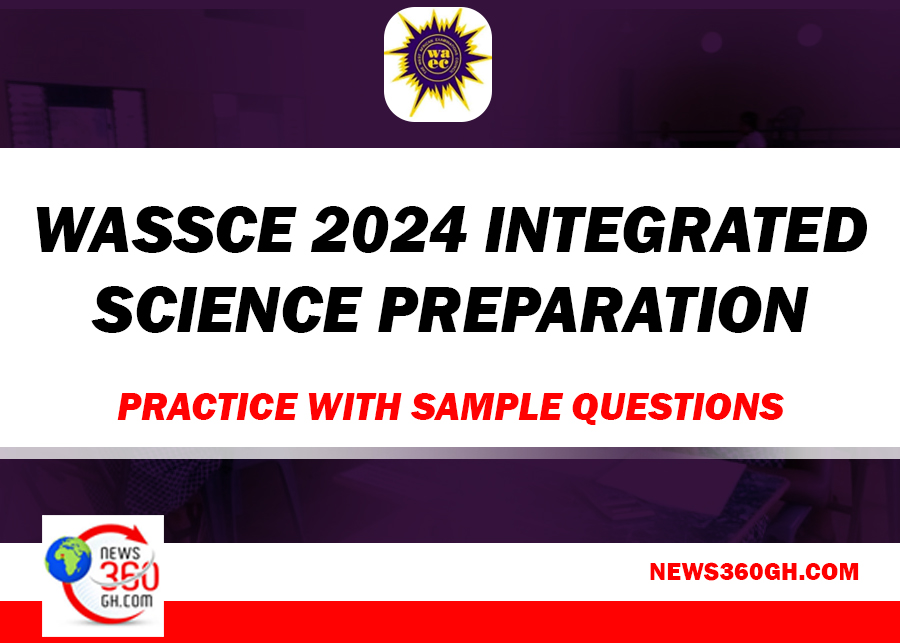
Crack the WASSCE 2024 Integrated Science Exam: Practice with Sample Questions
Are you a final-year Senior High student gearing up for the WASSCE 2024 Integrated Science exam? Practice is key to success. Here’s a set of sample questions to test your knowledge and understanding.
Sample WASSCE 2024 Integrated Science Questions
These sample questions cover a broad spectrum of topics in Integrated Science. Try your hand at them and identify areas where you need to improve.
Question 1
- Define compounds and mixtures.
- Differentiate between elements and compounds.
- Explain the greenhouse effect and climate change.
- Describe electrical rectification and half-wave rectification.
- Discuss the importance of rainfall, temperature, sunshine, and wind for crop life cycles.
Question 2
- Explain why goats are not suitable for intensive management.
- Name diseases affecting rabbits.
- Draw the structure of Na+ and contrast organic with inorganic compounds.
- Define decomposers and list common examples.
- Describe the role of the middle ear in sound transmission and the importance of earmuffs.
Question 3
- Calculate current and energy consumed by a 1.5 kW, 240 V appliance running for 2 hours.
- Explain how mulching conserves soil and provide examples.
- Define pollution and list major atmospheric pollutants.
- State benefits and sources of potassium and calcium.
Question 4
- Describe methods for preparing salts from specific acid-base and precipitation reactions.
- Write a balanced equation for a given reaction.
- Explain tidal waves and water contamination.
- Discuss the importance of legumes in crop production and the advantages of crop rotation.
- List qualities of a good thermometric liquid and precautions for using a liquid-in-gas thermometer.
Question 5
- State functions and structural adaptations of the placenta.
- Explain isotopes using given examples.
- List farming practices to prevent soil erosion.
- Describe the water treatment process and the significance of each stage.
Question 6
- List post-planting practices for high cereal yields.
- Define mechanical advantage and give examples of second-class levers.
- List apparatus for preparing a standard solution and calculate required water volume.
- Differentiate between hypogeal and epigeal germination with examples.
Tips for Success
- Practice Regularly: Consistent practice is essential for mastering the subject.
- Understand Concepts: Don’t just memorize facts; grasp the underlying concepts.
- Time Management: Practice answering questions within the allotted time.
- Seek Clarification: Don’t hesitate to ask your teacher if you have doubts.
- Stay Updated: Keep yourself informed about current environmental and scientific issues.
Remember: These sample questions are just a starting point. Refer to your textbooks, past question papers, and online resources for comprehensive preparation.
Would you like to focus on a specific question or topic? Feel free to ask for more detailed explanations or additional practice problems.
Helpful Resources:
- WASSCE Integrated Science Practice Tests: https://www.examedge.com/international/waec/sciencesecondary/wassce-integrated-science-practice-tests.cfm
- Integrated Science Test for WASSCE and NOVDEC Candidates: https://www.youtube.com/watch?v=iE9uUWe0WH4
Best of luck with your WASSCE exams!







